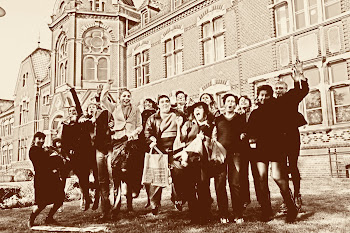Genoa 2001: Democracy in the 21st Century
By Maya Nitis, July 17th, 2012
The consequences of an incident of
unprovoked police violence in Genoa, Italy in 2001 continue to be lived out by
the numerous people – from police and activists (both sides still being tried
in court in 2012) to journalists, family members and bystanders (still
suffering the after effects of police brutality). Together with its on-going
aftermath, this incident raises questions about the clash of sanctioned police
violence and nonviolent strategies in the present century. How does the
handling of this outrage in a so-called “first world democracy” indicate a
change from the past? What must still be done to honor the memory of Carlo Giuliani,
murdered by police on the street, and support survivors of police violence?
In July of 2001 Genoa, Italy, hosted
the controversial G8 meeting, for which thousands of people had gathered there.
In the middle of the night on July 21st 300 police officers attacked
and “savagely beat” sleeping journalists and activists. As has been proven in
multiple court proceedings since then, all the people sleeping in the Armando
Diaz School that night were unarmed and were in fact all sleeping when the
police broke down the door and attacked them with clubs, metal bars and similar
weapons. The injuries to 87 people were staggering with a British bicycle
courier left in a coma with a collapsed lung and 8 broken ribs (The Guardian, February 2012). [1]
There was absolutely no evidence, which was not falsified as the courts
repeatedly established, against anyone attacked there (The Guardian, July 2012). [2]
The images pervading the news, the
screens, are so violent virtually nothing remains. (How many channels do you
know – showing something other than violence now?) But this reporting is highly
selective. 2001— a bad beginning for a century that has yet to establish
itself. The documentation of the outrage that took place in Genoa that year is
still being documented: with 1 film premiering at the 2011 Biennale and 1 in
2012 at the Berlin film festival, Berlinale. The fact of police attacking
peaceful citizens should suffice to stand back and consider the significance of
“democracy” in popular and political discourse. Although police violence is
nothing new in contemporary democracies, it is one of the most challenging
affronts – if not an aberrant one – to democratic claims. The gap between
knowledge and blindness remains gaping amidst exponentially increasing
technological capacities. While the barrage of (violent) images floods our
psyches, the possibility to comprehend, let alone critique the situation seems
to recede in the background of the shock used to facilitate dependency on
sellable sources of comfort and so-called security.
At the time of this writing, July
2012, the Italian courts reviewed previous court decisions of two cases related
only in time and space: Genoa 2001. In the first case of what has come to be known
as the Diaz School raid, according to The
Guardian: “After senior officers were acquitted at
trial in 2008, an appeal in 2010 reversed the verdicts, convicting 25 officers
for grievous bodily harm, libel and falsifying evidence.” However, none of the
officers involved will go to jail. In most cases the statute of limitations
timed out for the convictions for “grievous bodily harm” before the highest
court reviewed the case as is required by Italian law (http://www.guardian.co.uk/world/2012/jul/06/italy-g8-police-appeal).
Tragic accidents can happen anywhere. Yet
the minimal publicity and the lack of justice since 2001 testify that the
police violence in Genoa was no accident. Another case, unrelated except for
its setting during the same G8 meeting in Genoa, was also reviewed by the
Italian high court this year. On July 13th, 2012, the court confirmed
sentences against ten activists for “devastation and looting” of private
property. While five of the ten activists are awaiting appeal on other charges,
with sentences of 7 years, 3 sentences of 8 years each, and one sentence of 10
years and 9 months; 5 other activists have received the following sentences
with no possibility of further appeal: 6 years and 6 moths, 10 years, 12 years
and 3 months, 13 years and 14 years (http://leedsabc.org/verdicts-in-for-the-genoa-10-guilty-italy-g8-2001/).
